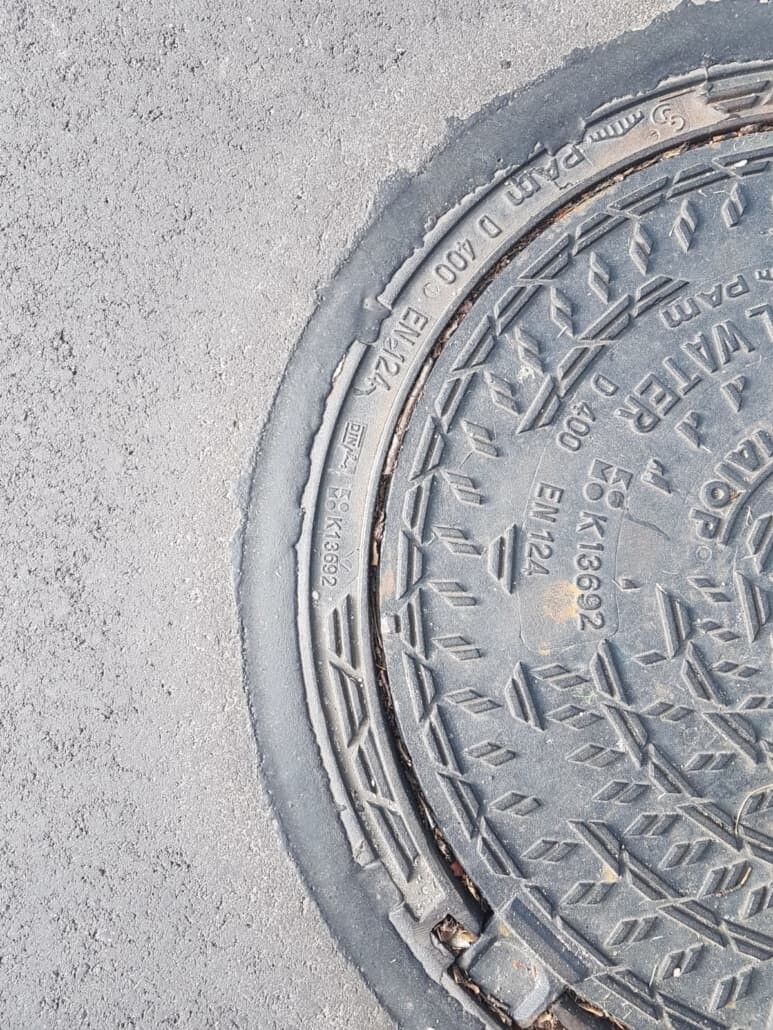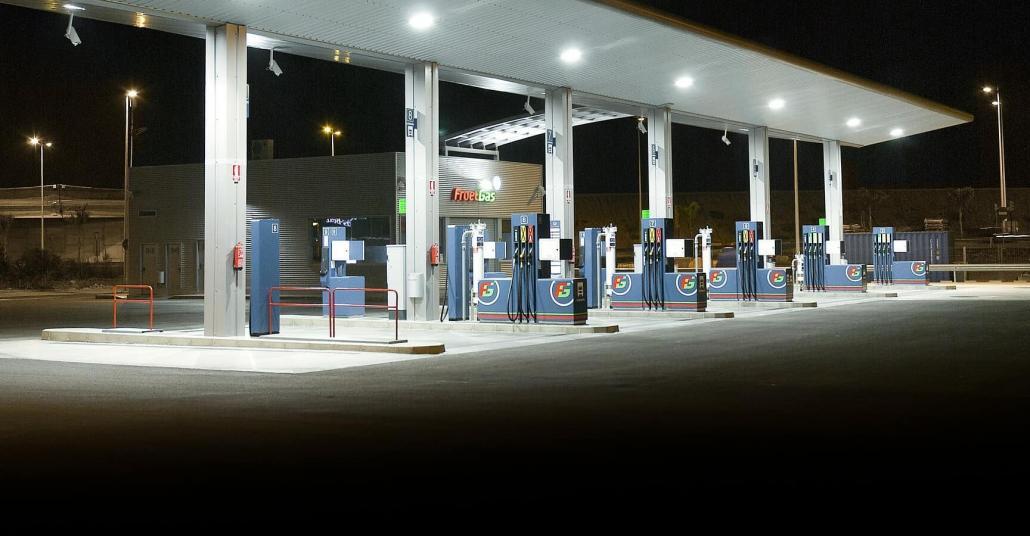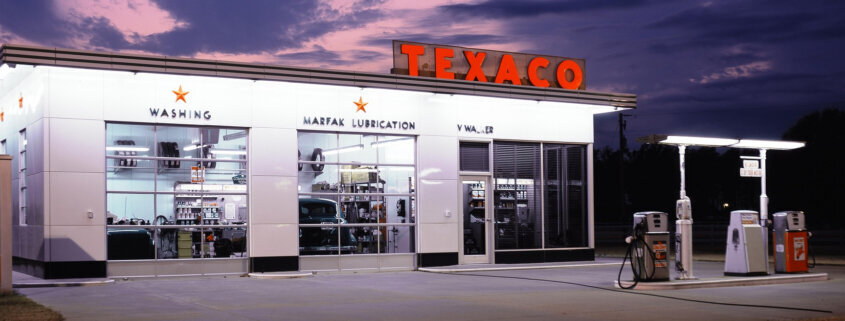Gasoline resistant sealant for gas stations
Gasoline resistant sealant contributes to safety at gas stations
Gas stations, or filling stations, are designed for refuelling motor vehicles from tanks underneath the stations. At gas stations, harsh chemicals such as gasoline, diesel and motor oil are present at all times. Therefore, the area in and around filling stations must meet certain requirements to guarantee safety. The forecourt is usually made of high density concrete pads which are joined together with a gasoline resistant sealant. Not only is the sealant resistant to gasoline but it also makes sure no fuels and oil can access the soil or groundwater.
The gasoline and diesel resistant sealant systems primarily have three aims:
- Keeping the soil and groundwater clean by providing impermeable seals which prevent chemical penetration.
- Reducing fire hazard by not contributing to the spread of flames in occasion of fire.
- Increasing overall safety when the right product is chosen: protecting the environment and the concrete as well as the people refueling their vehicles.
Characteristics of gasoline and diesel resistant sealant systems

At filling stations, fuels such as diesel and gasoline are present as well as oil spills are possible. They are also subject to almost continuous traffic from heavy loaded trucks to lighter motorcycles which not only drive on the concrete, but also stop to be refueled. Therefore, the most important requirements for gas stations sealants are:
- Chemical resistance: the sealant must not be affected by fuels and oil but retain its strength and sealing properties even when some fuel is spilled to the ground.
- Heavy load bearing capacity: even when heavy loaded trucks stop for refueling, the gasoline resistant sealant is not to break or crack.
- Abrasion resistance: also abrasion resistance is of high importance as the concrete and the sealant are subject to almost continuous traffic.
Note that similar requirements also count for applications at airports and harbors.
The types of diesel and gasoline resistant sealants for gas stations
The gasoline and diesel resistant sealants applied at gas stations are made for heavy duty as the environment is harsher than the most. Even though similar sealants are used for example in bridge expansion joints, the ones for gas stations must be a little more resistant. There are several types of sealants that are suitable for new forecourt concrete and concrete repairs.
- Polysulfide sealant: The most resistance to fuels can be achieved with polysulfide sealants. These result in impermeable seals which do not degrade even in full fuel immersion. As they are polymer sealants, they can rather easily be modified to possess other properties such as abrasion resistance and increased load bearing capacity.
- Epoxy polysulfide sealant: epoxy is one of the toughest resins used in sealants. Therefore, it is also suitable for gas stations. An epoxy polysulfide has increased chemical resistance, which together with its strength makes it the toughest gasoline resistant sealant. It is also suitable for concrete repairs.
- Modified silyl polymer sealant: conventional silicone sealants are known for their chemical resistance, but modified silyl polymer sealants have increased abrasion and heavy mechanical stress resistance.
Contact us for more information and assistance for choosing the best fuel resistant sealant for your project.
What to take into account when choosing a fuel resistant sealant for filling stations
Each country and region has their own rules and regulations for filling station construction. Always check with the local authorities which type of sealant is recommended. There are, however, some general aspects to take into consideration when looking for the perfect diesel, oil and gasoline resistant sealant for concrete at gas stations.

- Environment: it goes without saying that one of the most important aspects to consider is the environment: is the sealant sufficiently impermeable and oil, diesel and gasoline resistant?
- Safety: gas stations always have an increased fire hazard due to the presence of flammable flues. Therefore, the gasoline resistant sealant must be fire retardant to a certain point in order to reduce the hazard even when there is gas on concrete.
- Application and curing time: a filling station is a business where time is money. Therefore, it is good to consider how fast the sealant can be applied and how long it takes before it is hardened. Keeping the downtime at the minimum is desired.
- Durability and need for maintenance: sometimes it is better to invest in a sealant which application takes longer, but which does not require frequent maintenance. However, it can also be a conscious choice to keep the downtime at its minimum, even if it meant more frequently short periods of maintenance.
Find a oil, diesel and gasoline resistant sealant for gas stations to meet requirements
Gas stations are subject to a wide variety of rules, regulations and standards depending on the country and region. Therefore, the best fuel resistant sealant is not always a straightforward one-off decision. In case you are looking for a sealant (or coating) for concrete at a filling station (new or repair), contact us to get the most suitable solution!



